Intellectual Property (IP) management stands as a critical component in the realms of health and agriculture, sectors pivotal to human well-being and economic stability. The proper management of IP ensures that innovations are protected, which fosters advancements in both fields. This article delves into the intricacies of IP in health and agriculture, discussing strategies, challenges, and future trends.
Understanding Intellectual Property (IP) in Health and Agriculture
Before we can discuss effective management strategies, it is essential to understand what intellectual property (IP) entails in the context of health and agriculture. IP refers to the legal rights that arise from intellectual efforts in various sectors, providing inventors and creators with the exclusive ability to utilize their inventions.
Definition and Importance of IP in Health and Agriculture
In health care, IP includes patents, copyrights, trademarks, and trade secrets associated with medical products, technologies, and services. In agriculture, it encompasses similar rights for innovations in crop varieties, agricultural practices, and biotechnology.
The importance of IP in these fields cannot be overstated. It protects investments in research and development, encourages innovation, and promotes economic growth. For instance, a new drug or agricultural technology can have widespread effects, necessitating robust IP protection to ensure developers can recoup their investments. Moreover, the protection of IP also plays a crucial role in public health and food security. By incentivizing the creation of new treatments and sustainable agricultural practices, IP can lead to improved health outcomes and enhanced food production capabilities, ultimately benefiting society as a whole.
Types of IP in Health and Agriculture
- Patents: These protect inventions, whether it be a new pharmaceutical compound or an innovative farming technique.
- Trademarks: Trademarks protect brands and their related products, fostering consumer trust and loyalty.
- Copyrights: Relevant primarily in the health sector for software and media content, copyrights protect creative works.
- Trade Secrets: In both sectors, trade secrets safeguard confidential business information that provides a competitive advantage.
Additionally, the global landscape of IP in health and agriculture is continually evolving, influenced by advancements in technology and shifts in regulatory frameworks. For example, the rise of digital health technologies, such as telemedicine and health applications, has introduced new challenges and opportunities for IP protection. As these technologies become more integrated into everyday health care, the need for clear guidelines on IP rights becomes increasingly critical to ensure that innovators can protect their creations while also making them accessible to the public.
In agriculture, the advent of genetically modified organisms (GMOs) has sparked significant debate regarding IP rights. The ability to patent genetically engineered crops has led to discussions about the ethical implications of ownership over living organisms and the potential impact on biodiversity. As farmers and corporations navigate these complex issues, the role of IP in promoting sustainable practices while balancing economic interests remains a pivotal topic of discussion among stakeholders in the industry.
IP Management Strategies in the Health Sector
Effective IP management in the healthcare sector requires a strategic approach that aligns with the dynamic nature of medical innovation. This includes protecting inventions through a comprehensive patent strategy.
Patenting Medical Innovations
Patenting is a cornerstone of IP management in health. It provides exclusive rights for a specified period, allowing inventors to control the commercialization of their products. A well-structured patent strategy helps identify patentable inventions early in the development process and ensures that these are filed promptly to avoid potential infringements.
Moreover, a proactive approach can foster partnerships with other entities, potentially leading to licensing agreements that can further enhance returns on investment. Collaboration with research institutions and universities can also be beneficial, as these partnerships often yield innovative solutions that can be patented, thereby expanding the portfolio of protected intellectual property.
Furthermore, understanding the nuances of international patent laws is crucial for companies looking to expand their reach globally. Different jurisdictions have varying requirements and timelines for patent applications, making it essential for health innovators to tailor their strategies to navigate these complexities effectively.
Trademarks in the Healthcare Industry
Trademarks serve to differentiate products and services in the health sector. By establishing a recognizable brand, companies not only protect their market share but also gain consumer trust.
Effective trademark management involves regular monitoring of the marketplace to guard against infringement and dilution of brand value. Continuous assessment helps ensure that the trademarks remain relevant in an evolving market. Additionally, creating a strong brand identity can enhance customer loyalty, which is particularly important in the health sector where trust and reliability are paramount.
Moreover, companies should consider the potential for trademark expansion into new product lines or services, which can further solidify their market presence. Engaging in community outreach and educational initiatives can also reinforce brand values and establish a deeper connection with consumers, ultimately benefiting the overall brand image.
IP Rights for Medical Software
With the rise of digital health solutions, the protection of IP rights for medical software has become increasingly significant. Copyright protects the code and structure of software applications, while licenses govern the permissions and rights granted to users.
Health software must also comply with various regulatory frameworks, necessitating an integrated approach to IP management that considers both legal and functional aspects. Consequently, software developers should engage in thorough due diligence during development. This includes not only ensuring compliance with health regulations such as HIPAA in the U.S. but also conducting rigorous testing to validate the software’s efficacy and safety.
Additionally, as technology evolves, the emergence of artificial intelligence and machine learning in healthcare presents new challenges and opportunities for IP management. Developers must navigate the complexities of protecting algorithms and data sets while also addressing ethical considerations related to patient privacy and data security. This multifaceted landscape highlights the need for continuous education and adaptation in IP strategies to safeguard innovations effectively.
IP Management Strategies in the Agriculture Sector
The agriculture sector benefits profoundly from structured IP management strategies, particularly as global food demands increase and agricultural innovations become more sophisticated. As the world grapples with the challenges of climate change, population growth, and the need for sustainable practices, effective IP management becomes an essential tool for fostering innovation and ensuring food security.
Plant Variety Protection and Patents
Plant variety protection (PVP) and patents play a critical role in safeguarding advancements in agriculture. PVP specifically encourages the development of new plant varieties by granting breeders exclusive rights for a given period. This incentivization not only promotes research and development but also ensures that farmers have access to improved varieties that can withstand environmental stresses and yield better produce.
Simultaneously, patents can cover significantly innovative agricultural processes and products, enhancing crop yield or disease resistance. Farmers and agricultural enterprises must navigate these protections to ensure compliance and benefit from such rights. Moreover, the strategic use of these IP tools can facilitate partnerships between research institutions and private companies, fostering a collaborative environment that accelerates the pace of agricultural innovation.
Trademarks in Agriculture Business
In agriculture, trademarks help cultivate brand loyalty among consumers. Establishing a strong trademark presence mitigates the risk of market confusion and protects the integrity of products. This is particularly important in an era where consumers are increasingly concerned about the origins of their food and the practices behind its production.
Active management of trademarks involves registering new marks and conducting thorough searches to avoid conflicts with existing brands. A solid brand narrative can create a competitive edge, leading to increased sales and customer loyalty. Additionally, effective trademark strategies can help agricultural businesses expand into new markets, as a recognized brand can facilitate entry into diverse consumer bases, enhancing overall market reach and profitability.
IP Rights for Agricultural Technologies
With the advent of agricultural technologies, including precision farming tools and genetically modified organisms (GMOs), managing IP rights becomes even more crucial. These technologies often involve complex legal landscapes encompassing patents, copyrights, and trade secrets. As farmers adopt these advanced tools, understanding the nuances of IP rights becomes vital to protect their investments and innovations.
Farmers and agricultural technologists must remain well-informed about their rights and obligations to safeguard their innovations while complying with regulations that govern the use of such technologies. Furthermore, educational initiatives and resources can empower stakeholders within the agricultural sector to navigate these complexities effectively, ensuring that they can leverage IP rights to enhance productivity and sustainability in their operations. By fostering a culture of respect for IP, the agriculture sector can continue to thrive and meet the growing demands of a changing world.
Challenges in IP Management in Health and Agriculture
Despite the robust frameworks in place, IP management within health and agriculture faces numerous challenges that can impede effective implementation.
Ethical Issues in Health IP Management
Ethical considerations surrounding IP in health are prominent, particularly concerning access to essential medicines and medical technologies. The balance between profit motives and public health needs remains a contentious issue, with debates around patenting life-saving treatments.
Stakeholders must navigate these ethical concerns by promoting fairness and ensuring that innovations benefit society as a whole. Collaborative frameworks for licensing and IP sharing play a role in addressing these challenges.
Sustainability Concerns in Agricultural IP Management
To meet growing global food demands, agricultural innovations must prioritize sustainability. The commodification of basic agricultural resources through IP rights can sometimes undermine smallholder farmers and traditional practices.
IP managers in agriculture need to promote inclusive practices that respect the rights of indigenous communities and safeguard biodiversity. Such strategies will ensure that agricultural advancements can coexist with environmental stewardship.
Future Trends in IP Management in Health and Agriculture
As we look ahead, IP management in health and agriculture will likely evolve significantly, influenced by technological advancements and globalization.
Impact of AI and Big Data on IP Management
The integration of artificial intelligence (AI) and big data into health and agricultural practices is set to transform IP management. AI can assist in identifying patentable innovations through data analytics, providing deeper insights into market trends and consumer behaviors.
Moreover, big data facilitates conducting prior art searches, thus enhancing the patent application process. Embracing these technologies can lead to more efficient IP management strategies that keep pace with rapid advancements.
Globalization and IP Management
Globalization poses unique challenges and opportunities in IP management for both health and agriculture. On one hand, the globalization of markets allows for broader reach and collaboration. On the other hand, it complicates the regulatory landscape due to varying IP laws across countries.
IP managers must establish comprehensive strategies that account for these differences, ensuring compliance and protection across multiple jurisdictions. Engaging in international partnerships and aligning with global standards will also be crucial in addressing these challenges.
Conclusion
In conclusion, effective IP management in health and agriculture is vital for fostering innovation and safeguarding the interests of creators, businesses, and consumers alike. By understanding the foundations of IP, implementing robust strategies, and addressing emerging challenges, stakeholders can navigate this complex landscape successfully, ensuring that advancements continue to enhance both sectors sustainably.
Computer Packages Inc. (CPI) is a privately owned IP management company with over fifty years of experience serving the IP community. Our mission is to be the most trusted partner in safeguarding clients’ IP assets with innovative IP management software and annuity services. Learn how we specialize in IP patent, trademark, and annuity management by exploring our services.




